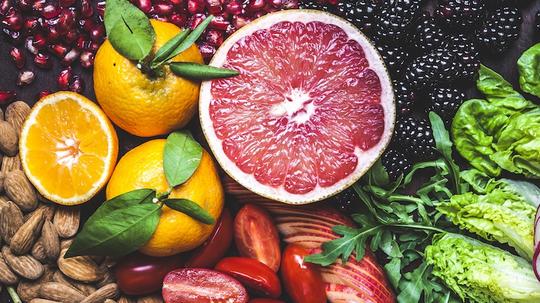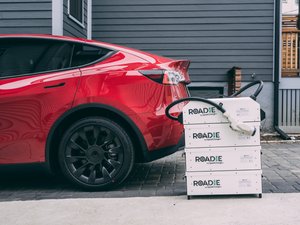
While the biotechnology boom seems to be eating up all the attention around innovation in Boston these days, there’s another story simmering in the city: startups catering to our hunger for good food and drink, restaurants and bars.
A recent player helping nourish this startup scene is Branch Venture Group. The group has a big menu of interests: food, agriculture and restaurant technology; digital tools and e-commerce; robotics; and life sciences. And its mission is a tall order: To help make the Hub a national center for food innovation.
Billing itself as an "investment network," Branch Venture feeds new food and beverage companies with guidance, networking and seed funds of under a million dollars.
Founded last year by Lauren Abda (who earlier cooked up Branchfood), Marcia Hooper (a senior adviser at Bowside Capital) and Julia Paino (who founded food company Swoffle and is a founding partner of NextGen Ventures), Branch Venture has a portfolio that includes OpenCity and Willie's Superbrew.
BostInno spoke with the three co-founders to find out their perspective on the food and drink startup scene. Here are their top 10 thoughts:
Traditional investors have little appetite for food startups, says Hooper. That's why Branch Venture formed: "The institutional investors and traditional venture capitalists don’t really know where to put food. It usually has very low intellectual property and the consumers can be fickle.... Institutional investors have tended to shy away from consumer companies, until they are cash-flow positive, and then there is a lot of private equity that likes consumer products and their firms. But there’s this void for entrepreneurs."
Advice can help turn a half-baked idea into a fruitful venture, says Paino: "From my own view of coming out of the venture capital world and then stepping into the role of being an owner and operator of my own food companies, I was seeing this constant question from entrepreneurs of, 'Where do I turn to, not only for capital resources, but also for knowledge?' Boston has been this epicenter of food innovation for decades now, and there is really this abundance of resources as it relates to manufacturing, co-packing, and distribution knowledge."
Passion plus skill will make great recipe for success, says Abda: "Over the years, through Branchfood, we’ve seen so many people attempting to launch and grow their businesses. In many cases, they do have some experience in the food industry – they’ve done this before, they are serial entrepreneurs, or they’ve worked in the industry. But we also have people who have never worked in the industry, but they have this passion. They have this family recipe, they have a child with a food allergy, they are a technologist and they’re interested in food (and) they say, 'Well, I can use my skill-set, my knowledge for improving our food system.' But they don’t always understand the complexity of the industry. We’ve found that knowledge and expertise and those resources are very helpful for them to … fill in their knowledge-gap to truly build an exceptional business."
Hub has taste for food innovation, says Hooper: "I’d like to say that in five years, all the ingredients are here – no pun intended – to make Boston a cluster for food. There are many entrepreneurs coming out of Harvard, MIT, Boston University, and Babson College, who are thinking about food. Then around all of this, you have huge numbers of multi-billion dollar food companies in and around the Boston area."
Branch has a hunger for feeding the world in new ways, says Abda: "I tend to get most excited about people and companies and ideas that are actually solving real challenges in the food industry. Food is a very complex system, and it’s antiquated in many ways. There is a lot of room for improvement, there is a lot of waste created.... And looking to the future, the statistic is that by 2050, we have to feed 9 billion people on this planet. It will not be done by the way we are managing, and producing, and distributing food today. There needs to be innovation that happens at every point in the food supply chain…. We see companies like Barnana and ReGrained that are taking byproducts of the supply chain and then transforming them into new products."
Got health? We’ll bite, says Hooper: "What I think is stronger and is only going to get stronger is the better-for-you (trend). People want – and I think we can provide – healthier food with no additional hassle. People are not going to go back and stone grind their own grains to make healthier bread. But they love being able to go to the store to buy healthier bread, or buy better drinks. The benefits become long-term health."
Variety really is the spice of life, says Hooper: "Baby Boomers on average buy twenty-two brands a month. They buy the same detergent, the same peanut butter, the same milk, the same cereal. Millennials, on the other hand, buy two times or three times more brands per month. They are much more open about wanting to try a variety (of brands and products)."
Subscriptions, sales model may be missing ingredients, says Paino: "From our point of view, when it comes to food … there isn’t a lot of intellectual property, and for companies to differentiate themselves, they have to integrate some other type of proprietary system. When the idea of subscription models for food came out it was … unique. There’s the idea of having food continually delivered to your door every month or every other week. Now, what we’re finding is, companies want to continue to innovate on the idea of subscription models. One company that reached out is doing a text-to-subscribe system."
But subscription without innovation can be a recipe for disaster, says Hooper: "There is always a risk with subscription models. The problem with subscription models is that if you don’t manage them correctly, your next box is coming before you want it. Then all of a sudden you say, 'I don’t want this, it’s wasteful.' You don’t want your consumers feeling bad. You want them to think, 'Wow, I’m so glad this here. I want this.' So, getting that right, is a lot more than using this blunt instrument of, 'Oh, it’s the third Tuesday of the month, I’m going to get my box.' (But) using big data and artificial intelligence and text-on-demand gets that right. As a blunt instrument, I have concerns about people getting something and not being ready for it. I think those kill business models pretty quickly."
Taste can be as important as message, says Abda: "It is the product -- what someone is eating, how clean is it, is it plant-based? -- there are so many companies working to build better food. Then on the other side, it's how is it marketed, what is the messaging around it, what is the brand? We talk a lot about this when businesses are pitching to Branch Venture Group. What will help this grow the most? Is it the taste? Is it the looks? Is it the authentic messaging. ... It depends on the brand. I would say RXBAR has done a great job of packaging, for example...."
This interview was edited for brevity and clarity.








